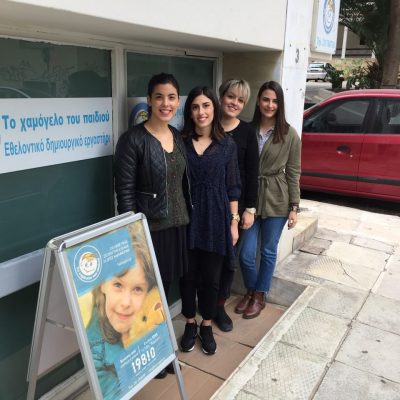Article
There are nursing homes and day centres for the elderly in my neighbourhood that I had never visited. My friend and I attended one and spoke with the women there; they commonly expressed their need to feel creative and communicate with younger people. (Efi Stathopoulou)
Efi Stathopoulou believes that victims of discrimination are likely to be subject to more than one type of it. She witnessed this firsthand when she visited a number of nursing homes and elderly day centers in the Acharnes suburb of Athens. During her visits, she spoke with residents and found that many of them suffered from feelings of loneliness and alienation. They also had a longing to connect with the youth and bring creativity back into their lives. She found that women, especially those of migrant backgrounds, were particularly susceptible to ageism, sexism, and, at times, even xenophobia. Efi believes that public discourse about the ageing European population makes them feel undervalued and depressed. Women, in particular those who are in their sixties and seventies, are often portrayed by the media as a financial burden to society, which adds to the oppression women experience and presents them with an obstacle to their creativity, expression, and feeling of worth. So, after becoming aware of these societal issues in her own community, Efi set out to fight against them.
In 2018, Efi left Greece for the United States to participate in the Humanity in Action Fellowship Program in Detroit. During this time, she learned about social activism, human rights, and other topics relevant to her cause, and, in doing so, laid the groundwork for her Action Project.
Upon her return to Acharnes, Efi started her initiative, Bridging the 1940s with the 2000s, by sending out an invitation to the elderly women in the day centers she had previously visited to participate in a creative workshop. She advertised it as a means of self-expression through art, as well as a chance to connect with younger women. The response overwhelmingly enthusiastic. The funding for the art supplies for the project came after a lot of effort and mobilizing all possible stakeholders in the area who were determined to empower women through this initiative. Then, it was a matter of organizing the place and time of the meetings for the project to take off.
It did not take long for the project to become so popular and well-attended that the elderly women continued organizing the weekly meetings themselves. This became an opportunity for the marginalized elderly women of the city to come together with younger women to make art, socialize, and share tea and cookies that were provided by a local bakery. The women, on their own, donated all the art pieces to Smile of the Child, a local non-profit child welfare organization. In the end, Bridging the 1940s with the 2000s piqued the interest of local authorities, who committed to publicize the project in the future. All in all, Efi’s initiative demonstrates how showing compassion, empathy, and giving worth to marginalized groups of society, such as the elderly women of Acharnes, can make their lives happier and more creative through weaving a community.

